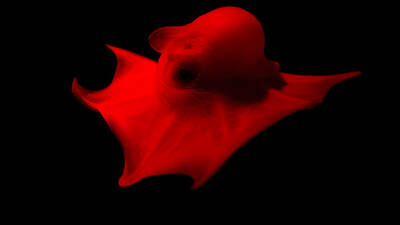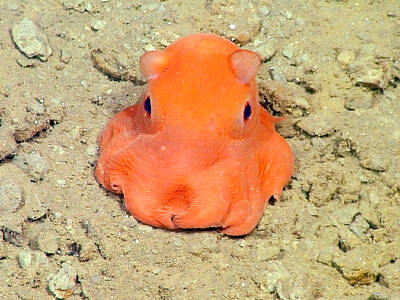Bees do a very important job for the world, but many bee species are endangered. That’s why on May 20, we celebrate World Bee Day. It started in 2014, when the Slovenian Beekeepers’ Association launched a campaign to make the public aware of the need to protect bees. May 20 was chosen as it’s the birthdate of Anton Jan?a, a Slovenian who pioneered modern beekeeping techniques. The day was made official by the United Nations in 2017.
Bees are pollinators, meaning that they help fertilize other plants. 35 percent of the world’s crops depend on bees to grow. Some of these crops are key sources of nutrients. As the bee populations decline, the risk of global malnutrition intensifies.
There are several reasons why many bee species are endangered. One is the widespread use of pesticides, especially neonicotinoids. Another is the loss of habitat. Bees depend on weeds and flowers for food, but these disappear when areas are transformed into cities. Another reason is climate change. The warmer weather means that plants’ growing schedules are different. This results in bees passing the winter in their hives and emerging to find that the flowers they depend on to survive have already bloomed and died.

PHOTO COURTESY OF PEXELS / 照片: PEXELS 提供
If you want to help bees, what you can do is follow these suggestions. First, if you have a yard or balcony, use it to create a safe, pesticide-free space for bees and let plants and flowers occupy it. Also, urge corporations to stop making and using neonicotinoids. If people work together, perhaps we can see our bee populations thrive once again.
雖然蜜蜂為這個世界做著非常重要的貢獻,但多種蜜蜂已瀕臨滅絕。這就是為什麼在5月20日,我們慶祝「世界蜜蜂日」!它始於西元2014年,當時斯洛維尼亞養蜂人協會發起了一項活動,讓公眾意識到保護蜜蜂的必要性。選擇5月20日是因為這天是斯洛維尼亞人安東楊沙的生日,他開創了現代養蜂技術。聯合國於西元2017年正式宣布這一天為「世界蜜蜂日」。
蜜蜂是授粉者,這意味著牠們幫助其他植物受粉。世界上35%的農作物依賴蜜蜂生長。其中一些作物是營養的主要來源。隨著蜜蜂數量的減少,全球營養不良的風險加劇。
這麼多蜜蜂物種瀕臨滅絕有好幾個原因。其中一個是農藥的廣泛使用,尤其是新菸鹼類農藥。另一個則是棲息地的喪失。蜜蜂以雜草和花朵為食,但當這些地區被徹底改建為城市時,這些花草也跟著消失。還有另一個原因就是氣候變遷。暖化的天氣意味著植物的生長週期變不同了。這導致蜜蜂在牠們的蜂巢內過冬後,再出來時卻發現牠們賴以生存的花朵早已花開又花落。
如果你想幫助蜜蜂,你可以做的就是遵循這些建議。首先,如果你有院子或陽台,用它為蜜蜂創造一個安全、無農藥的空間,讓植物和花朵占滿此處。此外,敦促企業停止製造和使用新菸鹼類農藥。如果人們齊心協力,也許我們可以看見蜂群再次茁壯成長。
MORE INFORMATION
Slovenian adj. 斯洛維尼亞的 & n. 斯洛維尼亞人
pollinator n. 授粉者;傳粉媒介
fertilize v. 使受粉;使受精;施肥
malnutrition n. 營養不良
neonicotinoid n. 新菸鹼類農藥
(因所含的尼古丁系物質會破壞整體生態系統,歐盟已於西元2018年決議戶外全面禁用)
KEY VOCABULARY
1. launch vt. 發起;開創;發射
The politician wants to launch a public investigation into the company accused of selling polluted food. 這位政治家想對被指控銷售受污染食品的公司展開公開調查。
2. pioneer v. 開創;倡導
The man who pioneered the creation of digital computers was being honored at tonight’s award show. 這位開創數位電腦發明的人在今晚的頒獎典禮上受到表彰。
3. intensify v. 加劇;強化
The doctor told his patient his symptoms would most likely intensify if he didn’t take his medication.
醫生告訴病人,如果他不吃藥,病症很可能會加劇。
4. pesticide n. 農藥;殺蟲劑/pesticide-free adj. 無農藥的
You should carefully wash your fruit and vegetables to wash off the pesticides before you eat them.
在食用前,你應該要仔細清洗你的水果和蔬菜,以洗掉農藥。
5. transform vt. 改變;改善/transform A into B 將A轉變為B
When Dennis and his friends arrived, the quiet social gathering was transformed into a wild night out.
當丹尼斯和他的朋友們到達時,安靜的社交聚會轉變為一個瘋狂的夜晚。
6. hive n. 蜂巢;蜂群
The boys looked up and saw bees flying around a large hive right above their heads.
男孩們抬頭看到蜜蜂在他們頭頂上方的一個大蜂巢周圍飛來飛去。
7. suggestion n. 建議;提議
Kent was humiliated after his boss rebuffed his suggestions in front of the entire team.
在肯特的老闆當著整個團隊的面拒絕他的提議後,他感到非常難堪。
8. corporation n. 大公司;企業集團
After buying a German company, the Japanese corporation prepared to expand its business in Europe.
在收購了一間德國公司之後,這家日本企業準備要在歐洲擴展生意。
9. thrive vi. 茁壯;繁盛
The domestic rabbit thrived after being introduced to Australia, eventually becoming a pest.
家兔在引進澳洲後大量繁殖,最後變成對農業有害的小動物。
學習音檔: https://magazine.english4u.net/Magdata/menu/0o3lv
《空中美語》雜誌APP免費下載: https://www.english4u.net/apps/index.aspx
免費收聽當月《空中美語》雜誌課文朗讀及解析 !
文章由AMC空中美語授權使用: https://www.english4u.net

A: In addition to “Mission: Impossible 8,” what other new movies are in theaters? B: “Final Destination: Bloodlines” and “The Wedding Banquet” are out. The French film “Jane Austen Wrecked My Life” will also open soon. A: The Final Destination horror movie series is so scary that I don’t dare watch it. B: Then how about “The Wedding Banquet,” which is a 2025 remake of the 1993 classic of the same title? Oscar-winning actress Youn Yuh-jung’s performance in it is highly anticipated. A: But as a fan of British writer Jane Austen, I’m more interested to see how her works

A: Wanna go see a movie during the three-day weekend for the Dragon Boat Festival? B: Sure, I wanna see “Mission: Impossible – The Final Reckoning.” A: Rumor has it that this may be actor Tom Cruise’s last mission with the Mission: Impossible action movie franchise. B: Tom was only 34 when the first installment of the series was released in 1996. Now, he’s 63 and the eighth installment is out. A: I hope he’ll stay with the series. Let’s go see him fight against AI this weekend. A: 端午節三天連假週末要不要去看電影? B: 好啊我想看 《不可能的任務:最終清算》! A: 這有可能是湯姆克魯斯最後一次為動作片《不可能》系列出任務。 B:

The deep waters off the coast of California are home to a bizarre creature: the flapjack octopus. This creature, known for its pancake-like appearance, spreads itself thin on the seabed as a clever survival strategy, making it difficult for predators to spot and capture it. With its unique, umbrella-shaped body formed by webbed arms, the flapjack octopus moves through the water in a graceful manner. It propels itself forward by rhythmically moving its body and contracting its webbed arms. Its pair of ear-like fins, which move independently yet with remarkable coordination, also help it explore the deep-sea environment. These

Continued from yesterday(延續自昨日) https://www.taipeitimes.com/News/lang Many people may be familiar with flapjack octopuses thanks to Pearl, a charming character from the Pixar film Finding Nemo. However, her portrayal presents several scientific inaccuracies. In reality, flapjack octopuses are deep-sea creatures, which are unsuitable for the brightly lit shallow reef environment depicted in the film. Their primary defense mechanism relies on their reddish coloration, which would be ineffective in the well-lit shallows. Pearl’s famous line, “You guys made me ink,” is another fictional detail that is not consistent with the observed actions of real flapjack octopuses. As common as it is in many other octopus